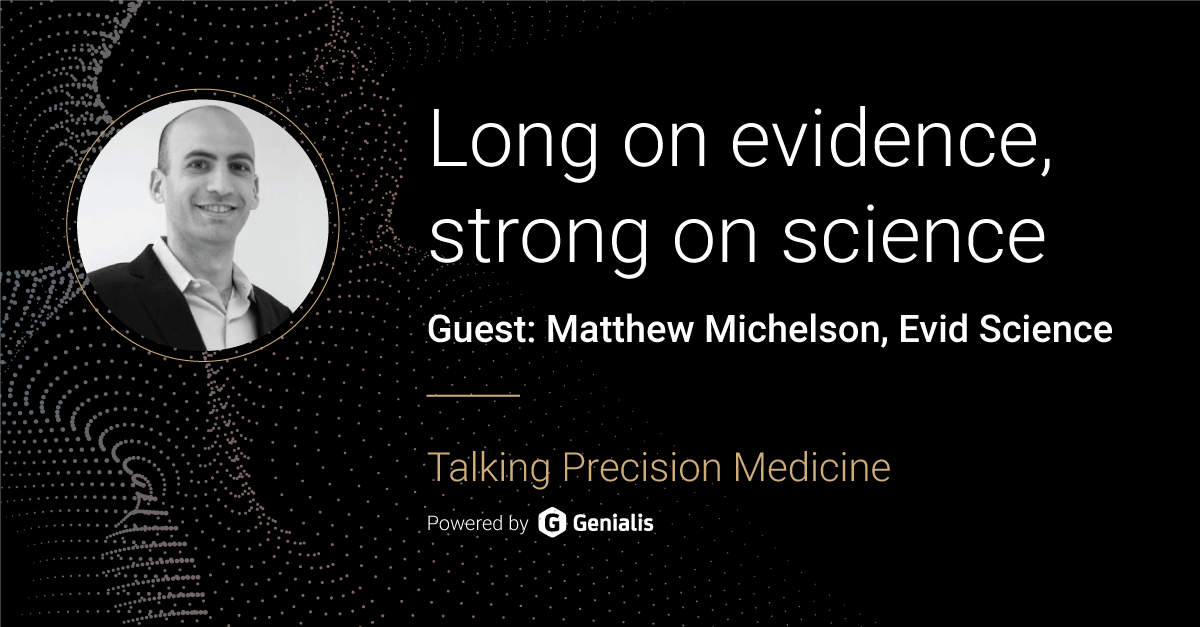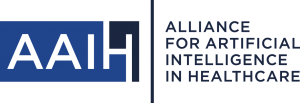Welcome to the Talking Precision Medicine podcast. In this series, we sit down with experts on the application of AI and big data analytics in the drug discovery space. Our guests are innovators, business decision makers and thought leaders at the intersection of data and therapeutics. We discuss the promise, practice, challenges, and myths of AI in precision medicine. This show is brought to you by Genialis, and Rafael, our CEO, is your host.
Genialis is focused on data integration and predictive modeling of disease biology… to help accelerate the discovery and de-risk the development of novel therapeutics.
In this episode, we speak with Matthew Michelson. Matthew is CEO of Evid Science — a technology company using AI to make access to medical evidence as simple and seamless as possible. He is an expert in machine learning and natural language processing and an enthusiastic company builder.
Episode highlights:
- The medical literature grows about 7,000 papers a day so nobody can really stay on top of it and read all this.
- An interesting trend in machine learning over the past 5 to 10 years is the fact that algorithms themselves are sort of less important than the data that you have and the mechanism by which you can leverage that data to train some kind of model.
- The system found out that in the case of liver injury hospitalization associated with atrial fibrillation, which is hard to treat, rivaroxaban is actually the safer choice than warfarin.
- Building the credibility to be able to approach a big organization, like a hospital group, that is sitting on all this evidence data, you really need to present strong science. One of the things we did at the end of our NIH project was to replicate a known systematic review published by Cochrane, with which we can say “look, we do science and can validate what our system does”.
- When starting a new company, first, find the problem and then figuring out the tech to apply. They started Evid Science by following the lean startup methodology and took the advantage of being scientists, talking to 50 or 60 people about what the problem is, before crafting the solution for it.

